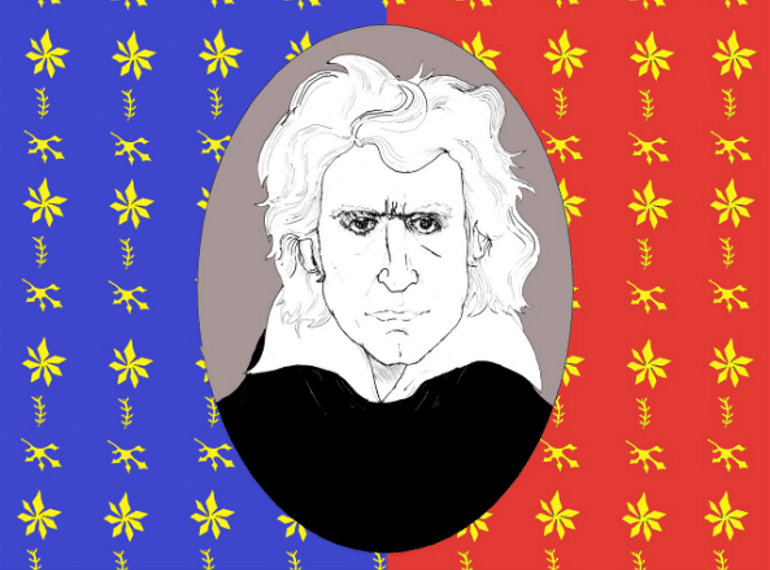
The portentous ‘dun dun dun duuun’ opening notes of his 5th Symphony are recognised everywhere, but just what is it that accounts for the enduring popularity of Ludwig van Beethoven?
That is the question which Surya Bowyer, QE’s Head of Library Services, examines in the latest episode of The Queen’s Library Roundness podcast.
He drafted in some local expert help – Ruth Partington, the School’s Director of Music, and Caroline Grint, Music teacher – in his exploration of the significance of the iconic German pianist and composer in the musical canon.
“2020 marked the 250th anniversary of Beethoven’s birth in Bonn,” says Mr Bowyer. “Around the world – from London to Melbourne and Shanghai to Sao Paolo – events which had been planned over many months, and, indeed, years, in concert halls and music venues to celebrate his works, in that symbolic year, had to be cancelled.”
Apart from the Nokia ringtone, (Gran Vals by Francisco Tárrega) those opening four notes of ‘Beethoven’s 5th’ – which form the title of the podcast – are probably the best known musical “motif” of all among the general public. And this is attributable, not to concert-going necessarily, but to their ubiquitous use in advertising and films. Yet would this suffice to explain the exceptionally high regard in which Beethoven is still held?
Miss Partington and Miss Grint discuss Beethoven’s acknowledged legacy as the composer whose composition spanned the transition from the classical period to the romantic era, and question whether he was truly ground-breaking in the way he is often presented.
The podcast covers the difference expectations held of composers such as Joseph Haydn and Wolfgang Amadeus Mozart, who were court composers, and Beethoven who, while receiving a stipend, had more freedom. They explore the effect this had in a number of ways, including the duration of his symphonies.
The discussion ranges over whether Beethoven was a musical genius, or a talented musician and composer who happened to be about at the right time, with a rising middle-class who could afford to attend music concerts and the emergence of music critics. It also touches on whether Beethoven would recognise his own work as it is played now on modern instruments.
“The way in which Beethoven and his music are written about leads us to listening to him using the terms that are ascribed to him,” says Miss Grint. “Because we expect universality, we find it, we read the meaning into it. Instrumental music is seen as having universality because it doesn’t tell a story using words, it’s more metaphysical.”
Miss Partington believes Beethoven’s continuing popularity lies in the powerful emotions he evokes. “I’m not a fan of working-out meaning,” she says. She believes there is a mystical element to music, and that it should not be pigeon-holed.
But whether a genius, or a man in the right place at the right time, there seems little doubt his legacy will endure, from the ‘low brow’ – car advertisements, for example – to the distinctly ‘high brow’, such as performances at top music venues, the three concluded.
- The Dun, dun, dun, duun episode of the Roundness podcast is available from the Library pages of the eQE online platform and from normal podcast providers, including Acast, Apple Podcasts and Spotify.

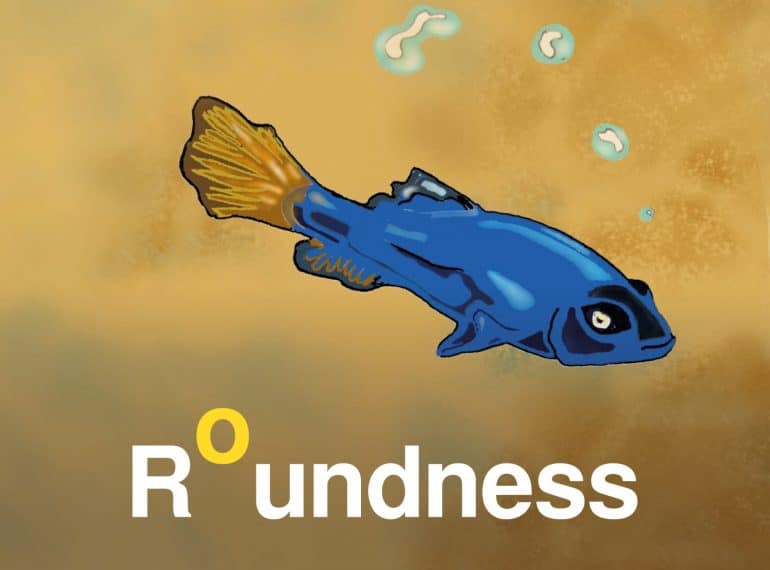
 Podcaster Surya Bowyer, QE’s Head of Library Services, warns that we disregard the “interconnectedness of the world’s natural systems” at our peril in a 36-minute episode that features a variety of expert voices and spans the globe, from Egypt and Ethiopia to France and Spain, and from the Amazon to the US.
Podcaster Surya Bowyer, QE’s Head of Library Services, warns that we disregard the “interconnectedness of the world’s natural systems” at our peril in a 36-minute episode that features a variety of expert voices and spans the globe, from Egypt and Ethiopia to France and Spain, and from the Amazon to the US.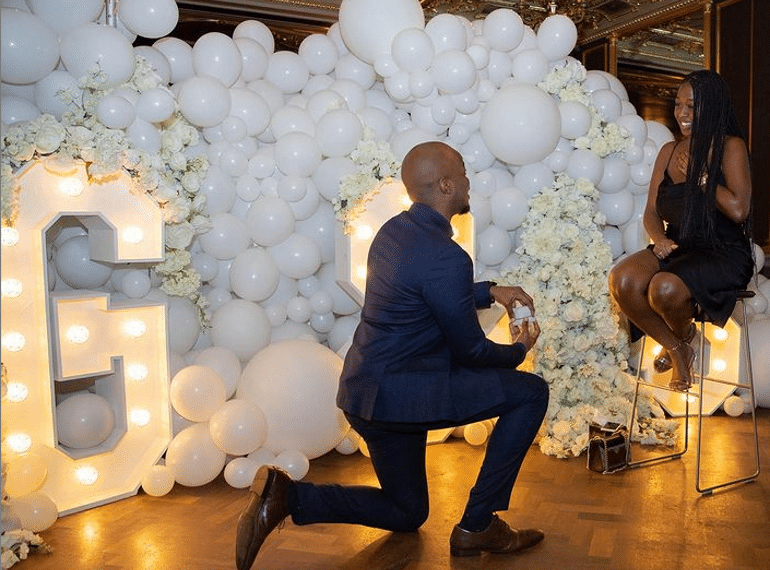
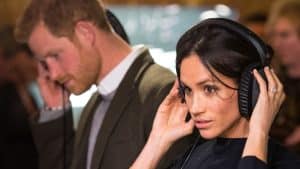 For the first episode of Archewell Audio, Megan explains, she and Prince Harry decided to enlist “a few friends and a lot of other folks” who “we admire, and get their thoughts on what they learned from 2020”. George (OE 2002-2009), whose relationship with Prince Harry stems from his long-standing role as an ambassador for one of the prince’s charitable foundations, joined singer Sir Elton John, American politician Stacey Abrams, presenter James Corden, and tennis player Naomi Osaka in making his contribution.
For the first episode of Archewell Audio, Megan explains, she and Prince Harry decided to enlist “a few friends and a lot of other folks” who “we admire, and get their thoughts on what they learned from 2020”. George (OE 2002-2009), whose relationship with Prince Harry stems from his long-standing role as an ambassador for one of the prince’s charitable foundations, joined singer Sir Elton John, American politician Stacey Abrams, presenter James Corden, and tennis player Naomi Osaka in making his contribution.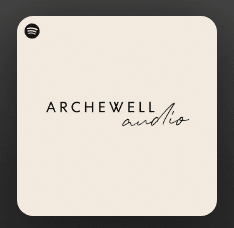 earlier in the month, George, in fact, revealed his plans to get engaged – “I would love to give a shout-out to my beautiful fiancée, Sandra” – and was duly congratulated by both the Sussexes.
earlier in the month, George, in fact, revealed his plans to get engaged – “I would love to give a shout-out to my beautiful fiancée, Sandra” – and was duly congratulated by both the Sussexes.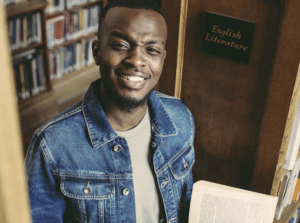 The following month, his acclaimed podcast, Have You Heard George’s podcast?, was nominated for, and subsequently won, a Peabody Award – one of the world’s oldest and most prestigious media prizes. His was the first British podcast ever to receive a nomination for a Peabody Award.
The following month, his acclaimed podcast, Have You Heard George’s podcast?, was nominated for, and subsequently won, a Peabody Award – one of the world’s oldest and most prestigious media prizes. His was the first British podcast ever to receive a nomination for a Peabody Award.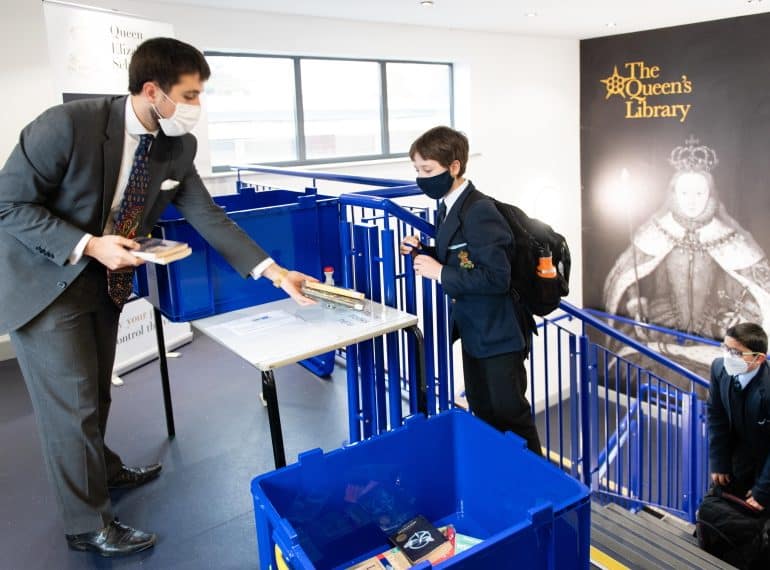
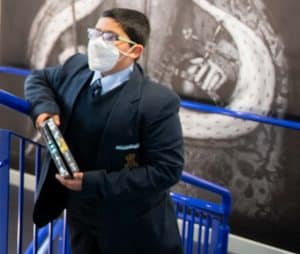 All younger boys – from Years 7 to 11 – can easily access the reading material they want by first making a reservation on the School’s eQE online platform, and then coming along in their year group’s time slot to pick up their books. This is done from a designated area just outside the Library. They can use the same time slot to return books, which are then quarantined in a sealed container.
All younger boys – from Years 7 to 11 – can easily access the reading material they want by first making a reservation on the School’s eQE online platform, and then coming along in their year group’s time slot to pick up their books. This is done from a designated area just outside the Library. They can use the same time slot to return books, which are then quarantined in a sealed container.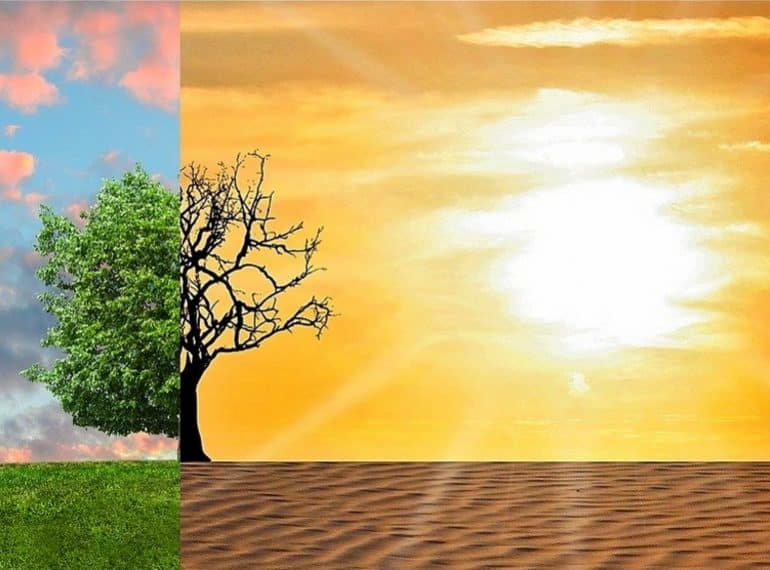
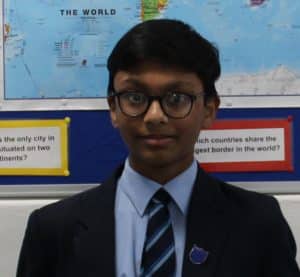 Emily Parry, Head of Geography, said: ‘I was very impressed with the standard of submissions and the boys’ awareness of the potential impacts of climate change. The creative poems and stories clearly highlight the threat that climate change poses for all of us.”
Emily Parry, Head of Geography, said: ‘I was very impressed with the standard of submissions and the boys’ awareness of the potential impacts of climate change. The creative poems and stories clearly highlight the threat that climate change poses for all of us.”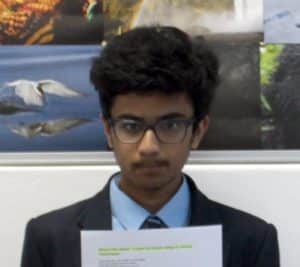 Most of Shreyas’s poem is equally bleak – “none of us will survive” – and he adds anger into the mix:
Most of Shreyas’s poem is equally bleak – “none of us will survive” – and he adds anger into the mix: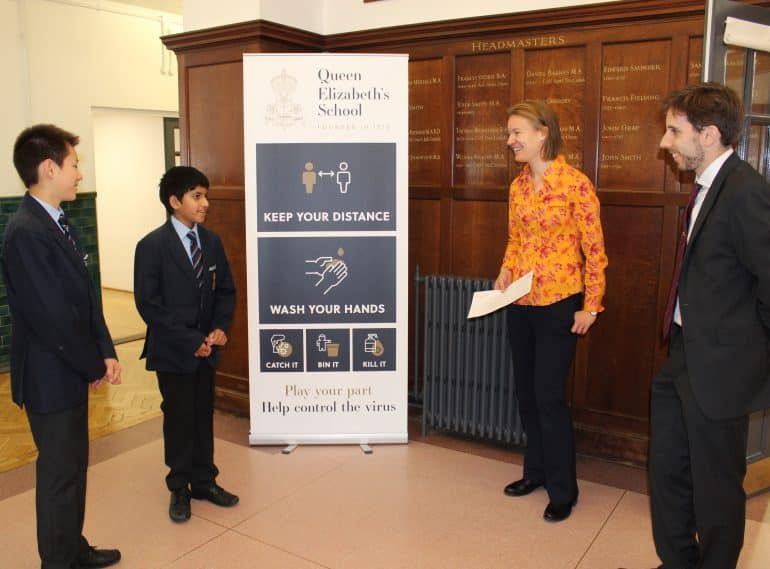
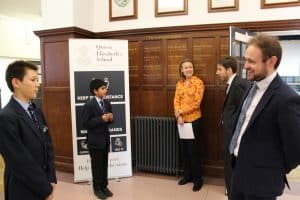 Staff from across the departments took part, showing pupils that poetry is enjoyed by teachers from all subject areas. Boy were invited to approach them during the day and ask them about their choices.
Staff from across the departments took part, showing pupils that poetry is enjoyed by teachers from all subject areas. Boy were invited to approach them during the day and ask them about their choices.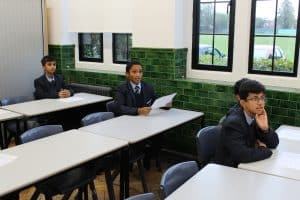 “The staff have nominated an incredibly wide-ranging selection, from poems that inspire, to poems that address problematic issues in the modern world. I’ve really enjoyed reading the selections which teachers have nominated.”
“The staff have nominated an incredibly wide-ranging selection, from poems that inspire, to poems that address problematic issues in the modern world. I’ve really enjoyed reading the selections which teachers have nominated.”